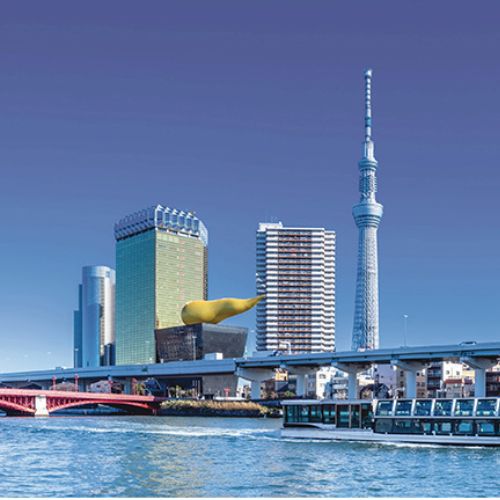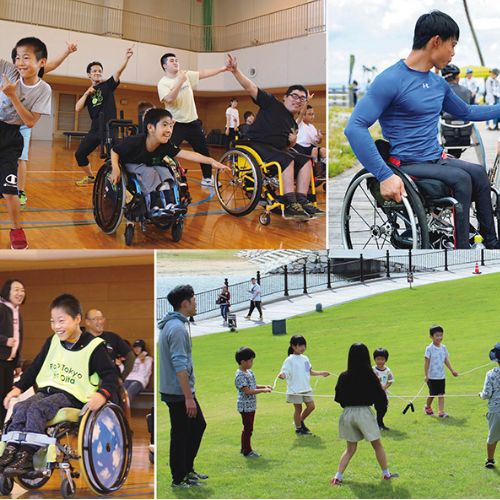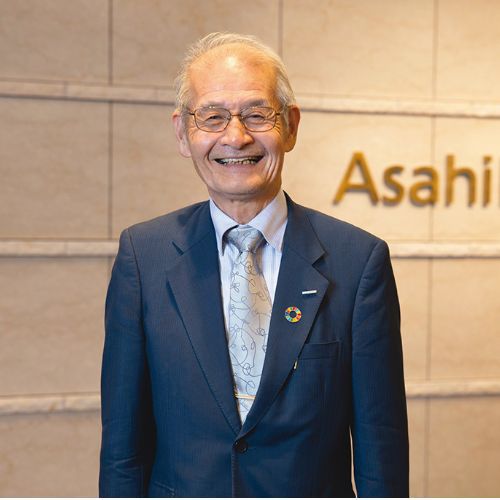In May 2019, I spent two days meeting four companies in the Oita City area: Oita Bank, Yatsushika Brewery Company, Oita Made Company, and Fundokin Shoyu Company. How did this come about, why did I do this, and what did I learn?
For some years, I have gone to Japan twice a year for several weeks each time. I always go to some cities I have never visited, somewhat randomly selected. I am no longer particularly interested in sightseeing; rather, my purpose is to learn about local companies and the financial institutions that support them. I do not have a major research project; I simply am curious about local companies and their economic environment.
Colleagues at the Development Bank of Japan (DBJ) make the arrangements for these company meetings. In Oita, I was accompanied by Hirofumi Maki from DBJ in Tokyo and Kimihiro Fukuyama, DBJ chief representative in Oita. Patricia Hara of Pacific English Inc. served as my interpreter since my Japanese is not good enough to handle a substantive discussion with companies.
Oita is a small prefecture on the east coast of Kyushu noted for its hot springs, Beppu in particular. The prefecture’s population was 1.15 million in 2018, about 10 percent below its 1955 peak.
As with other rural prefectures, Oita has to deal with a declining population as younger people, after graduation from high school, go off to college and careers in the larger cities. This process has been exacerbated by the now overall decline of Japan’s population.
Oita Bank, established in 1893, with 94 branches throughout the prefecture, is successful, though its profits have been under pressure due both to the Bank of Japan’s sustained low interest rate policy and the lack of demand for loans. However, it has sustained profits by realizing capital gains in the sale of Japanese Government Bonds (JGB), and other securities.
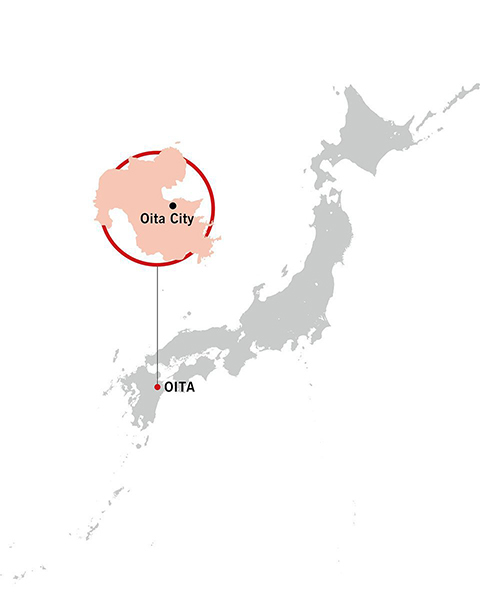
The bank’s strategy is to invest in new projects and companies to “revitalize Oita Prefecture” and create new lending and financing opportunities. The bank is participating with local government and other institutions in a project to raise high-quality beef (wagyu) on 50 hectares of rolling hill pasture where the cows can roam freely and have calves. This contrasts with raising cows in small pens and feeding them grains and hay, making the labor input smaller. The bank expects this project to be very profitable.
In 2017, Oita Bank, since it is allowed to own only 5 percent of a company’s share, together with four prefectural companies, established Oita Made Company to promote goods produced by its clients and other local companies. Its retail store, catering to mostly Japanese tourists, sells a wide range of crafts and other products including food, sake, and shochu.
Its main business is as a wholesaler of these Oita products. It is developing the export of wagyu, fish, and shiitake mushrooms to Taiwan, as well as promoting soy sauce, miso products, and other agricultural goods. In 2019, Oita Made introduced the upscale “JAPAN BLUE fountain pen,” using a newly developed metal material colored with natural indigo.
Yatsushika Brewery Company in Kokonoe-machi town is a significant regional producer of high-quality, award-winning sake and shochu, with several brand names. Founded in 1864, the current president is the sixth generation to manage and operate this family-owned firm. The company only started producing shochu in 1981 since, despite its less elite reputation, shochu was profitable while sake was not. The domestic markets are regional and decreasing, so the company is actively developing markets in China and Southeast Asia. The elder son of the CEO has developed a sparkling sake in pressure-resistant bottles made in France. The entrepreneurial family has re-invested profits for generations.
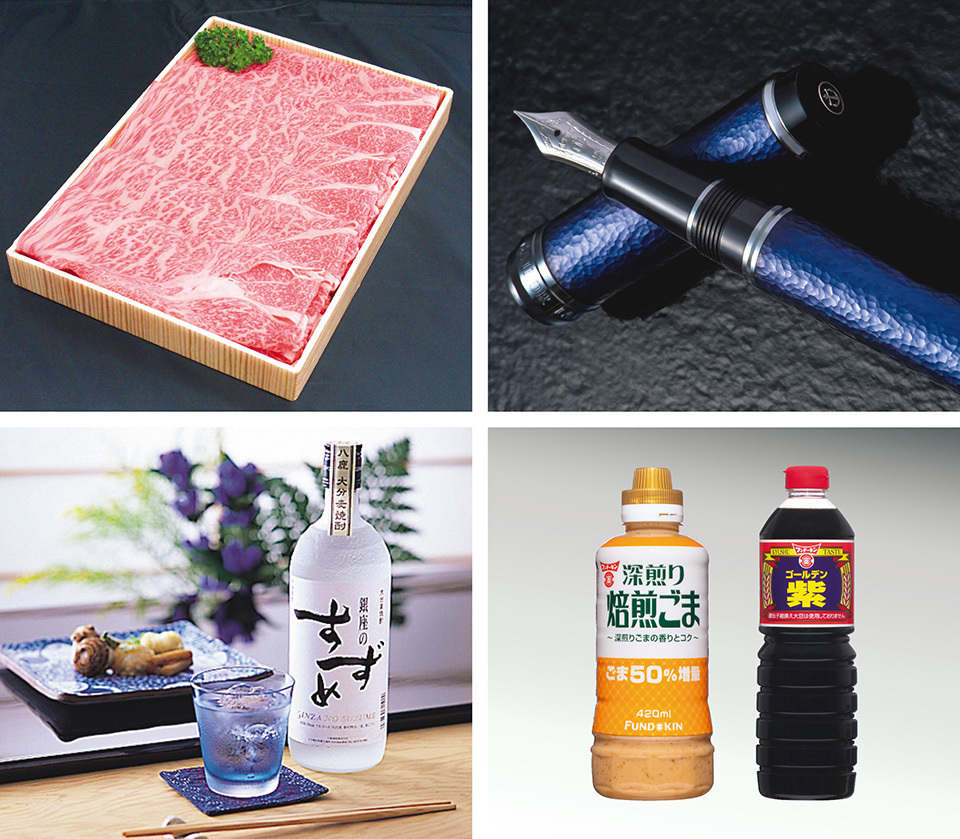
Fundokin Shoyu Company, located in Usuki City, is another fascinating, innovative, family-owned company in a traditional food-related industry. Established in 1861, the business initially produced shoyu (soy sauce) and miso (fermented soybeans). The current president, the fifth generation, joined the company in 1985 after working for several years at the Development Bank of Japan. Fundokin is the largest soy sauce producer in Kyushu, and ninth-largest in Japan, and is the largest producer of miso in Kyushu and fifth-largest in Japan. In response to market opportunities, about 30 years ago, the company began developing dressings with soy sauce flavors. The company has created a variety of dressings, including a popular sesame dressing, which now comprises about half of its dressing sales. Fundokin has four factories, each making its own special products. Each is owned by a separate entity established as a cooperative with other local producers as minority shareholders.
My Oita trip reaffirmed my appreciation that one of Japan’s strengths is small, privately-owned companies. These flourish everywhere in Japan and make Japan far more than an economy of major cities and large companies. I have written brief reports about each company; they are on Columbia University’s Center on Japanese Economy and Business website at www.gsb.columbia.edu/cjeb/research/companyreports.
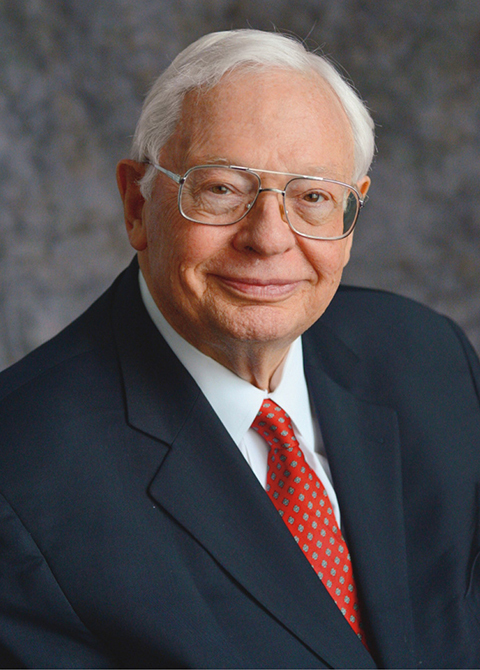
Hugh Patrick
Hugh Patrick is founder and chairman of the Center on Japanese Economy and Business, codirector of Columbia’s APEC Study Center, and R. D. Calkins Professor of International Business Emeritus at Columbia Business School. He completed his BA at Yale University in 1951, earned MA degrees in Japanese studies (1955) and Economics (1957), and a PhD in Economics at the University of Michigan (1960). His professional publications include 18 books and some 60 articles and essays, including most recently How Finance Is Shaping the Economies of China, Japan, and Korea (Columbia University Press, 2013), co-edited with Yung Chul Park. Professor Patrick has been awarded Guggenheim and Fulbright fellowships and the Ohira Prize. He has been a member of the Council on Foreign Relations since 1974. In November 1994, the Government of Japan awarded him the Order of the Sacred Treasure, Gold and Silver Star (Kunnitō Zuihōshō). He received an Eagle on the World award by the Japanese Chamber of Commerce and Industry of New York, Inc., in November 2010.


























